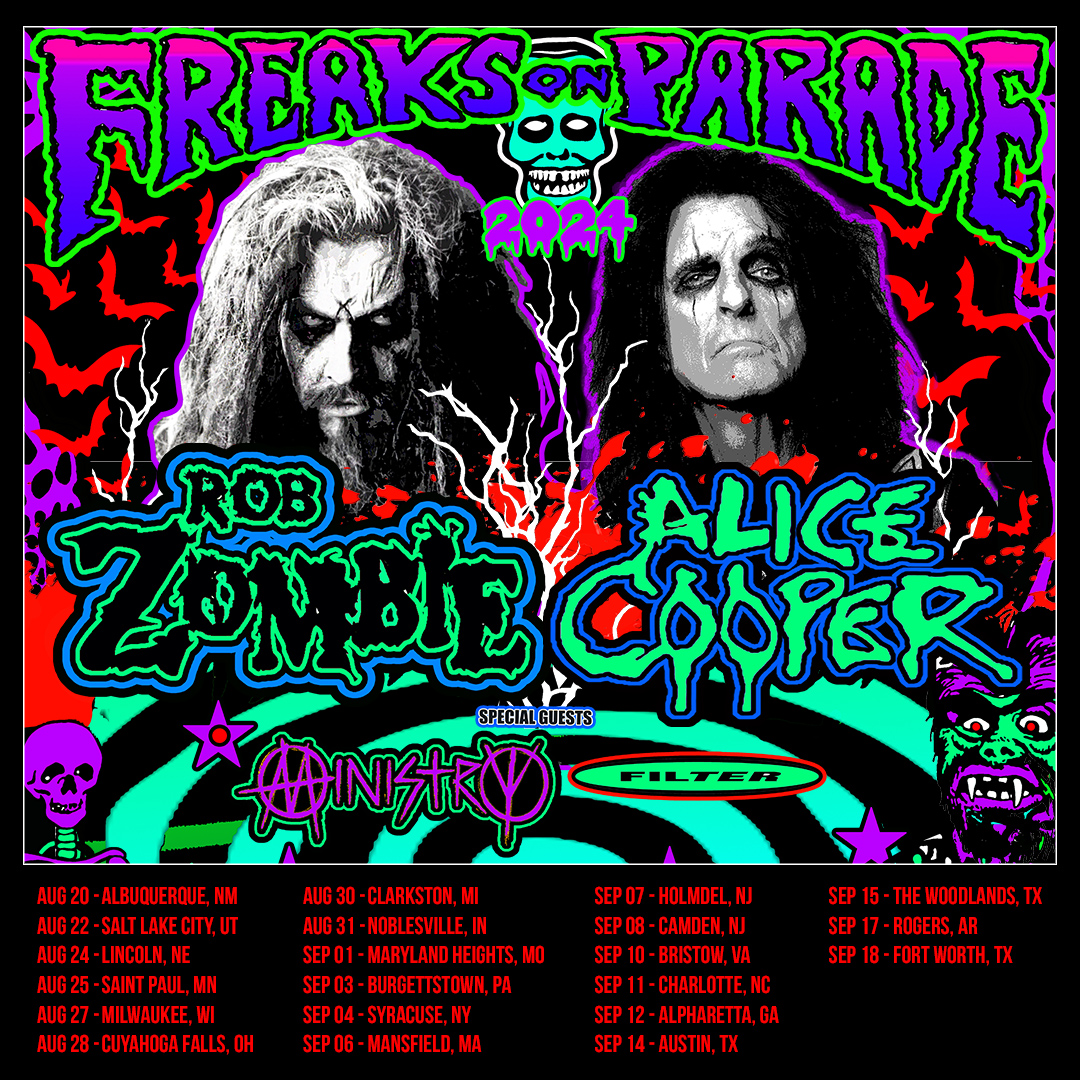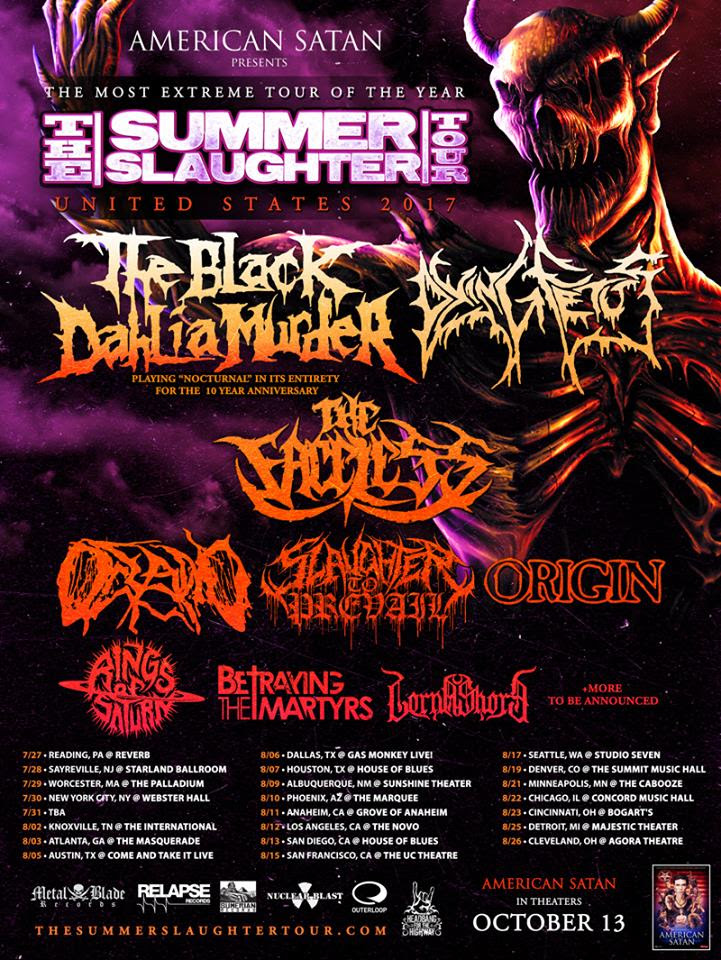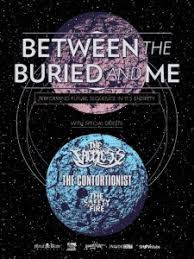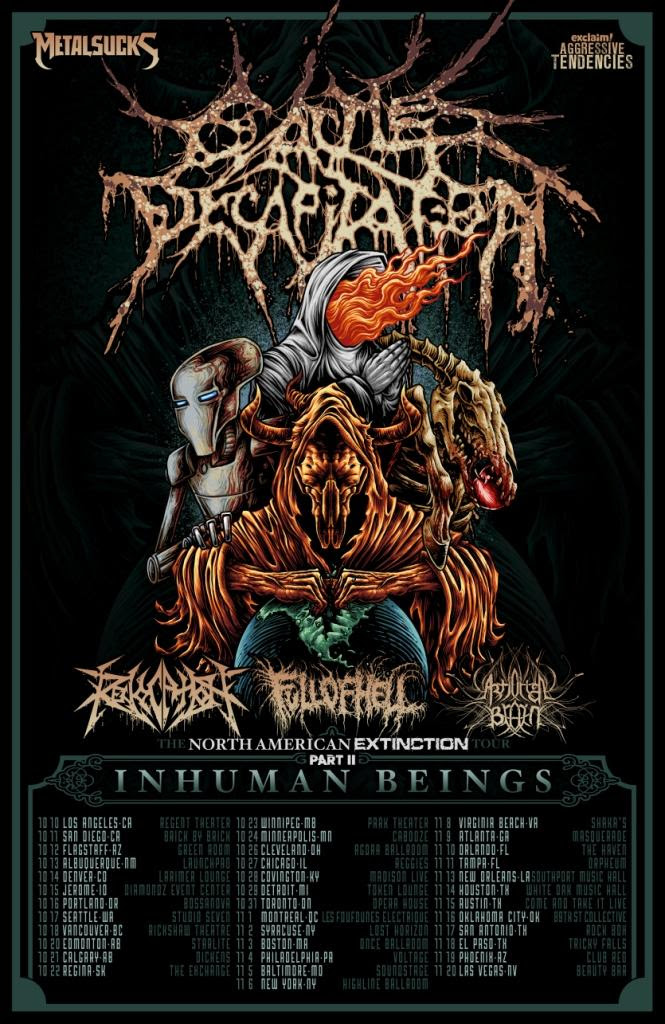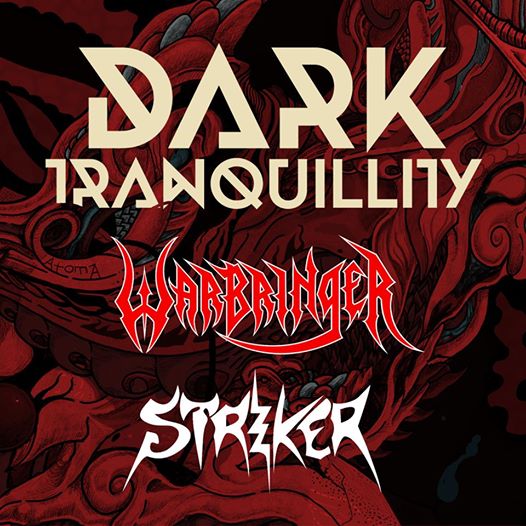Nikki Sixx Interview
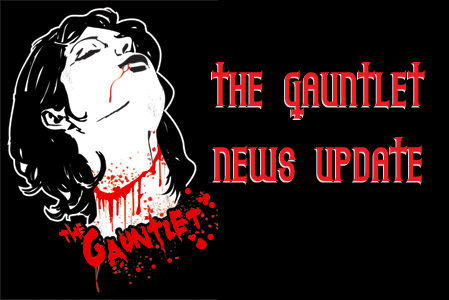 The Gauntlet: How's it going?
The Gauntlet: How's it going?Nikki Sixx: It's going good. How are things with you?
The Gauntlet: I just finished reading your book about 20 minutes ago, if that is any indication on how I feel.
Nikki Sixx: Oh my god. You must be just feeling wonderful right now.
The Gauntlet: I have never read something that has left me feeling so depressed.
Nikki Sixx: That's interesting. Most people tell me that it is both depressing, yet uplifting at the same time.
The Gauntlet: I can see that as there are some good moments and some funny moments. But for me, it couldn't outweigh the depression. After reading the book and everything you went through over that year, I went downstairs and hugged my daughter.
Nikki Sixx: Yeah, it has been an interesting life.
The Gauntlet: How are you even still alive? I am sure that is something you have asked yourself.
Nikki: You know what, I don't know. Maybe part of what I am doing here is bringing awareness here to a global epidemic that affects many people not only here, but everywhere. In my situation, I supposedly had it all. If I can give a little bit back to the charity so they can help some of the kids out that may be going through what I have. I want to give a little bit back for all the killer gifts I have been given in my life.
The Gauntlet: In your diaries, you wrote at great length about the many occasions of you shooting up heroin while paranoid and locked in a closet with a loaded gun. How did something tragic not happen to you or someone close to you?
Nikki: You know, it is amazing the constitution we have as human beings and yet it is so fragile at the same time. We take it for granted and think we are going to be just fine, then we walk out the door and are hit by a bus. Somebody else can pull the same stunts I Have and survive. Why we do these things I don't know. To be honest with you, in my case it took this book to give me an awareness. Maybe just one person will read this and be able to relate to it all. My family was fucked up and it made me feel fucked up. Because I felt fucked up, I did this and that. That was the end result of all this. I am not standing on a soapbox saying don't do this or that, act this way don't act that way. I think you can smell and taste rock n' roll and still be able to refrain from the drugs. Through a lot of work one makes better decisions in your life and that is a good thing for young bands who are coming up. You don't need all that shit to be the shit.
The Gauntlet: Some of the greatest musicians wrote their best works while messed up on drugs. People like Jimi Hendrix, Janis Joplin, Jim Morrison, and I'd even say Nikki Sixx.
Nikki: I look at my own experience in this. This last album, The Heroin Diaries Soundtrack, I think is among my best work artistically. If you listen to it lyrically, the cleverness and the twists and turns, it is the best music I have been able to produce. It tells me I don't have to do the drugs. The father and mother issues, the battle with God, the anti-social behavior because I didn't have a firm grip on reality. I never was in a single school long enough to form a long lasting relationship. The father that abandoned me, it made me feel worthless at best. I lived in a mansion with a private jet and yet something was missing. Until you can get back to that core...where I am at now in my life, fuck! I am so comfortable in my skin. I am so happy. Back to your question though, "Dr. Feelgood" was one of the best albums we made and we made it clean. With some people, maybe it works for them. God bless them if that works for them. There is a saying that some people have to die so the rest of us can live. I personally believed I was the person that had to die so the rest could live. I was always the person willing to throw myself under the bus like Keith Moon, Hendrix, Kurt Cobain and Janis Joplin for the betterment of the story. Now I don't endorse that story at all. What music do you think Hendrix would have made if he pulled his shit together? What music would Bon Scott have done if he would have not died. Those are questions we'll never have answers too, but for me personally, I am going to have a very creative rest of my life.
The Gauntlet: The "Heroin Diaries" album is phenomenal. The songs took on a whole new meaning after I read the book though, but it added that extra element of emotion and depth to the lyrics.
Nikki Sixx: On songs like "Accidents Can Happen," this was an issue we thought we needed to address. Relapse is a real core issue. I believe human beings in general take two steps forward and one step back and that's a relapse, weather it is in love or some other issue. We played that song live and I saw people crying, which is the biggest compliment you can get if you can touch someone enough to unnerve them. On the song "Life is Beautiful," you can look back and I think you should always be able to look back. You don't want to close the door on you past experiences. You need to look back and open your eyes and see where you came from. One of the lines in "Life is Beautiful" says 'I was waiting for my hearse but what came next was so much worse. I took a trail of blood to find my way back home.' I took a 180 in my life and I survived it. That is exciting to me to look in the rear. That is why I am raising money for this charity. I want people to say 'fuck yeah! That is fucking badass!'
The Gauntlet: You mentioned that along with battling drug addiction and having family problems that you also had issues with God. In the Heroin Diaries you used religion being pushed on you as a way to get out of various treatment programs. Was this just an excuse to not get clean or were you that against religion?
Nikki Sixx: Hold on 1 second Jason. I have another call coming in. [30 second pause] Sorry about that. It was Mick Mars. He says 'Hi.' Back to your question. In retrospect, I had an issue with that at the time because I felt like it was sort of. How can there be God if I was in the places I was in at my life. When people would knock on my door and try to throw it on me, I became very rebellious. I was already rebellious anyway and stubborn against the concept of spirituality. I was spiritually void and bankrupt. For me, it was another thing to fight against. Just one more thing on a long list of things to keep me out there fighting the war. When you are in the battle, you might be wounded, but you keep fighting. It is only when the battle is over and you sit there and realize that "I have mold in my stomach." I took a .357 to my arm and shoulder and I was bleeding to death. It is only then that the shock wears off and you can start to pull yourself together and lick your wounds.
The Gauntlet: What charity are you working with?
Nikki Sixx: In America we are working with Covenant House. I am looking for other charities in other territories to raise money for them when the book goes on sale in the UK, Scotland, Italy, Germany, etc. I do believe this is a global issue with run away kids and issues with parents. We need to just help out a little there. The music program inside Covenant House is an important part of the program for me because music did so much to help me in my life. If we can give back to some of these kids through a music or art program, it will help get them off the street. Some of these kids have ended up in a position where they are completely helpless and they turn to prostitution, drugs and gangs. Every opportunity we can give them to get them to stick to the program will help them continue the process of recovery.
The Gauntlet: When you first decided to go back to this era of your life, how hard was it?
Nikki Sixx: For me the battle was how to say it and not to preach it. It was a way to share it and get the right message across and a way to expose my experience and not impose my own beliefs. That was important to me and was part of the challenge that I really believe we rose to. Getting the band members, ex-girlfriends, managers and people I was involved with in the industry to come forward and getting them to tell their side of the story in an honest and unpredictable way without making it a fluff piece was to me an important part of the story. It gives you a well rounded account of what it's like in a family and an extended family. We had opinions from my mother, grandfather and sister. It really allowed me to think. Know wonder why I felt so uprooted. I really didn't have a solid foundation. I ran with it. I had a stick of dynamite and I ran with it until it blew up. I wasn't smart enough to drop the damn stick. I waited until it blew up in my face. That's was just my decision. With the comments, you are definitely there. It is an honest read. I think there is a quirky dark yet deepness to the writing that allows a little relief. I pretty much laugh at death. I have always had a dark and dry sense of humor. For me it was exciting to read these things. They had every right to say these things because I was an asshole. Some of the comments were interesting as they were doing the same thing.
The Gauntlet: Motley Crue was always known as a party band. But when you write about drinking Slash literally under the table, I was shocked as I know Guns N' Roses were also notorious for their consumption back in the day.
Nikki Sixx: It was funny. When Tom Zutaut (Geffen Records A&R) signed Guns N' Roses, I had gone to the band and said I wanted to take them on tour. Things started to be put together and Tom came to me and said "man, these guys are going to show you how it's done." I was like 'really?' It was a bit like throwing the gauntlet down. But we had a lot of fun.
The Gauntlet: It pretty much took you hitting rock bottom and then some a couple times before you were able to get your life back together. What do you think of others going through the same thing?
Nikki Sixx: I never want that for anybody. I know some people have to. It is what it is. I am just trying to share one persons perspective and how I handled it. It is how I handled it and how I came out the other side which is important.
The Gauntlet: Where there any diary entries that got cut because they were too dark?
Nikki Sixx: No, but there were entries that others made that had to be cut down by the lawyers as it could have put them in a legal position. I said "fuck them." If I am laying my neck on the line, let them. I am trying to help people. The story needed to be told.
The Gauntlet: How did the soundtrack come about.
Nikki Sixx: DJ Ashba and James Michael are great friends and writers. The music was really inspired by the book. In James' words, he wanted to create a rock opera. Tamara Conniff from BillBoard Magazine said it best when she said "it doesn't sound like 'The Wall' and it doesn't sound like 'Tommy' or 'Quadrophenia,' but it is." You can listen to it and see the book. You can listen to it and go on the journey much like you told me that you did. Scoring the music was the most freeing musical experience I have had in years. It was effortless. The album wrote itself. For us, we created the beginning, the middle and the end which was "X-mas in Hell," "Intermission" and "Life After Death." We had a double album of music and then it was a matter of honing it in for the soundtrack to get a good clear picture. We wanted to get a cohesive picture lyrically, melodically and conceptually. I feel we achieved it. We broke formula in a lot of places even though we are songwriters. A lot of the stuff wouldn't play on the radio, but we never had that in mind. We never had expectations of being on the radio. The fact that "Life is Beautiful" is doing so well on the radio is shocking to us.
Read More News
Tags: Nikki Sixx, Motley Crue , Nikki Sixx, interviews
Jason Fisher August 01, 2007

